A new Catholic college in Maryland embraces Tradition while thinking innovatively to make education more affordable
We opened the doors of Collegium Sanctorum Angelorum (The Collegium of the Holy Angels, called The Collegium for short) in the fall of 2021 in historic Hagerstown, Maryland, on the eastern coast of the United States. We are a classical liberal arts undergraduate college, founded to meet some of the major issues facing higher education today.
By Collegium President Edward Schaefer*
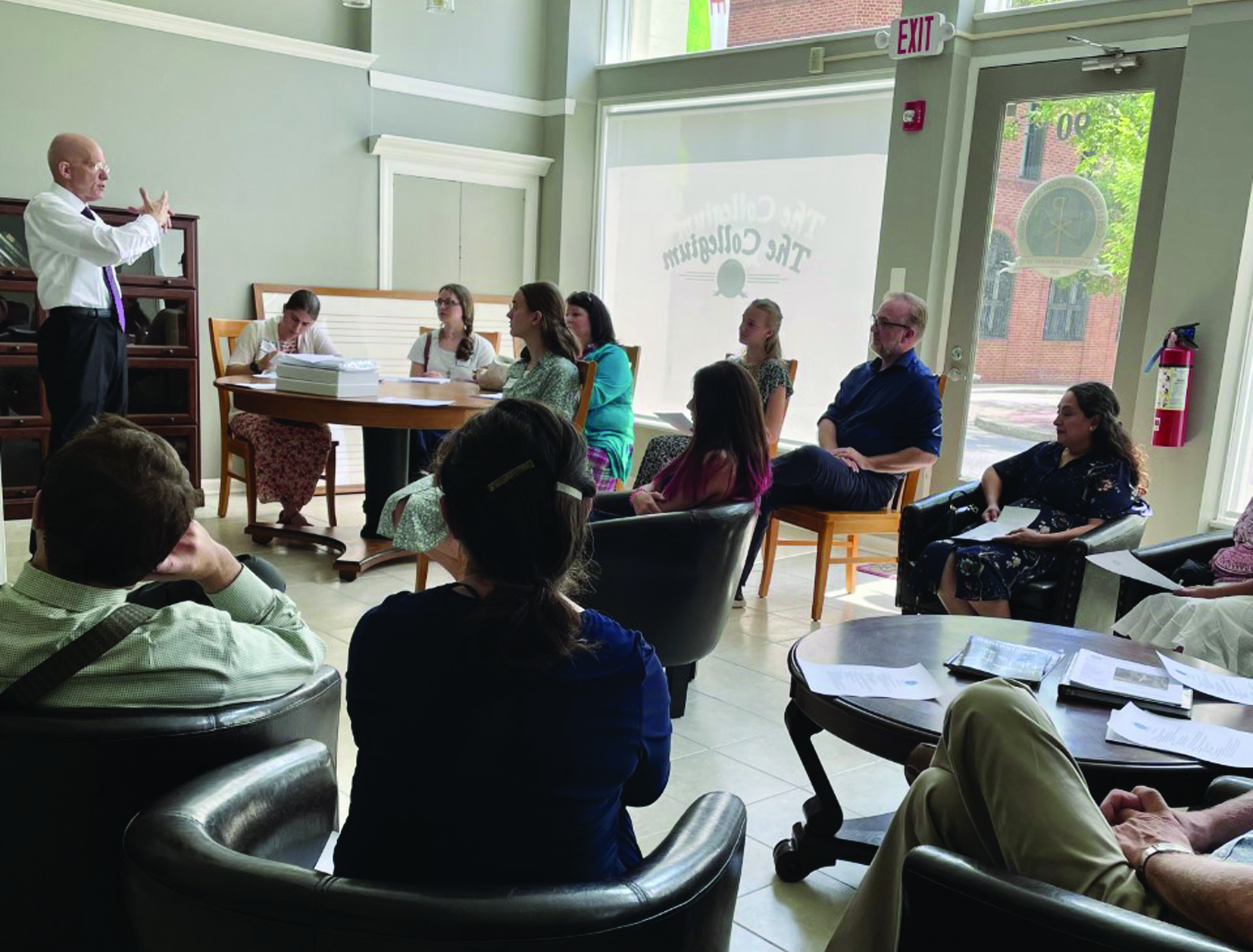
Collegium President Edward Schaefer at an orientation day for students and parents
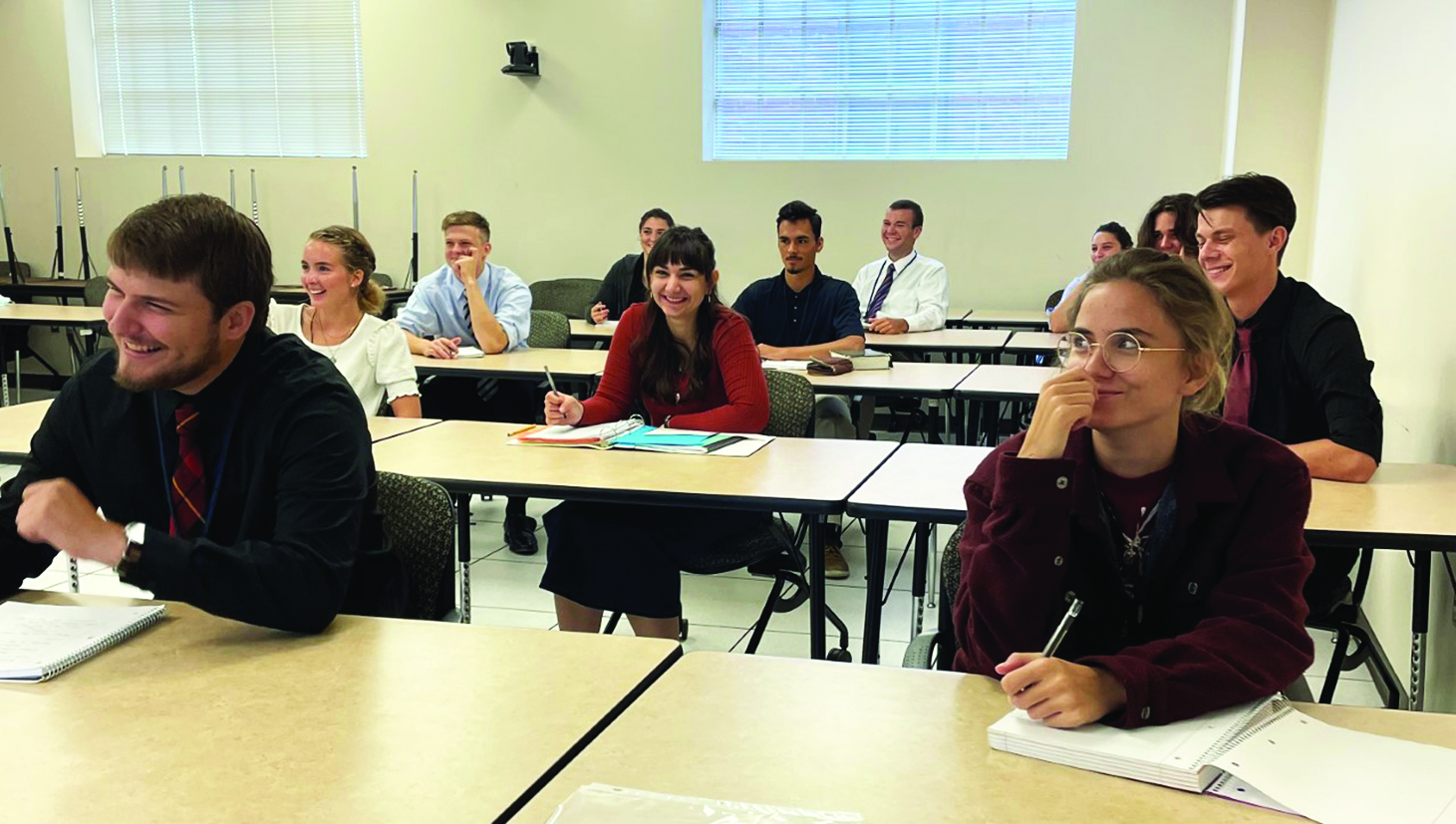
Students in class
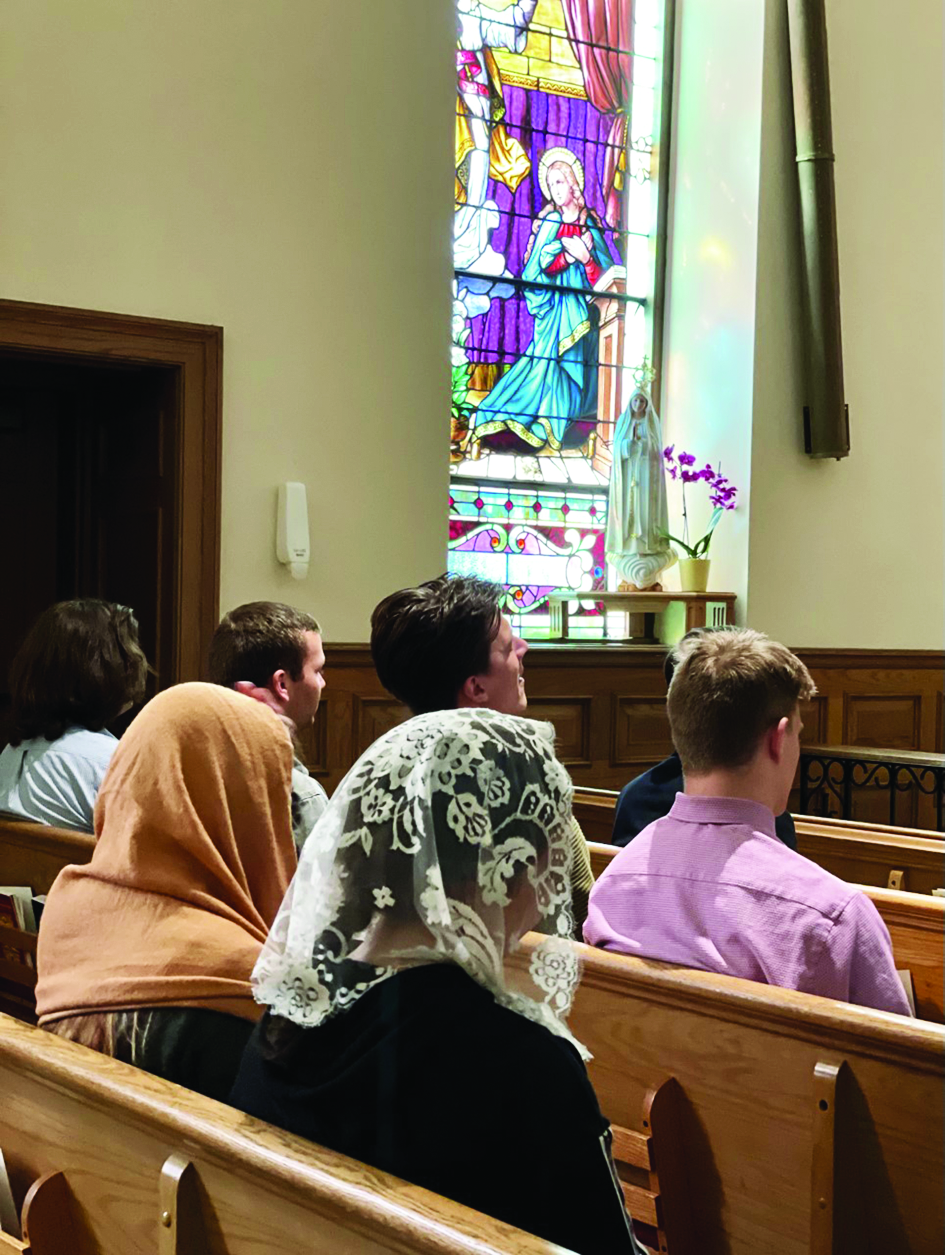
A moment of common prayer
The Challenges
The challenges facing higher education today are numerous. I will focus on three.
- First, there is a declining pool of students. Birthrates in the United States have been falling for years, and this decline is now offering colleges, which are largely built on a financial model of perpetual growth, fewer students to feed that growth.
- Second, there is the spiraling cost of college. The average tuition today at a four-year, private college is almost $33,000/year. This does not include housing, meals, and additional costs such as books and travel. The full cost is over $45,000/year.
- Third, with regard to Catholic institutions, the data show that a high percentage of young Catholic adults stop practicing their faith either during their college years or shortly thereafter. (Pew foundation studies put this percentage at about 80%. Some studies put it as high as 93%.) Whatever is happening in Catholic colleges, it does not appear to be helping young Catholic men and women strengthen their faith or preparing them to live lives of virtue that will get them to heaven. What is worse, families are paying exorbitant costs for this.
The Collegium
The Collegium was founded to address these issues: directly, relating to cost and the kind of faith formation that young people receive in college; and indirectly, relating to declining birth rates by preparing young Catholic adults to live truly Catholic lives, in which they come to see that the primary purpose of marriage is to cooperate with God in His work of procreation. First, let’s discuss the issue of cost. One of the areas where costs have exploded in colleges is that of middle management: deans, associate deans, directors of this and that. While colleges have added these positions with good intentions, generally to keep faculty from having to take on more and more administrative work — often created by government — the result has been a large number of positions that add to the cost of running the institution but have little or nothing to do with creating income. In addition, colleges have invested in large infrastructures with many amenities to attract students. These amenities come at great cost, and none of them “pay for themselves,” except for housing, if all the housing units are filled. The Collegium is addressing the area of cost in four ways:
We have almost no positions that are exclusively administrative. All administrators teach, and all faculty members have administrative responsibilities. The only exceptions to this are in the offices of development and admissions, because these positions are income-producing positions.
We have no owned facilities, except for an income-producing property. We lease what we need, and we collaborate with existing entities to serve our students’ needs. For example, we lease classroom space. As we expand, we lease more; when we contract, we lease less. Our students can participate in theatre, art, symphony, hockey, ballet, casual basketball, and more, all in existing organizations downtown. Often, in these organizations, students get to work with people in the community who have more theatrical, artistic, musical, etc. experience than typical undergraduates, and The Collegium does not have to build an enormous infrastructure to support such activities.
Every student works as part of The Collegium experience. Students work in downtown businesses, which are many and varied. Yes, some of the jobs are more interesting than others – just like most part-time jobs that college students take. However, the jobs help keep the cost down, as the businesses pay The Collegium. In addition, the positions give all the students work experience, and, perhaps most importantly, this experience reinforces the spiritual benefits of work. (Indeed, every week when the new students take over the internal kitchen duties for the coming week, we pray at Lauds in thanksgiving for the students who have finished their week and for blessings upon the students taking over the duties for the coming week. See the Rule of St. Benedict, Chapter 35.)
We have engaged in auxiliary, income-producing enterprises, in order to relieve pressure on tuition and development. To date, we have a coffee business (www.heavenly roast coffee.com) and a laundromat, which generate about 5% of our operating revenue. Eventually, we will have auxiliary businesses that will generate 15% of our operating revenue and give our students more work opportunities.
The recent acceleration of inflation has put pressure on us, and our tuition will be increasing. Even so, we remain one of the lowest cost private institutions in the country. Our tuition/room/board for 2022-2023 is $16,800.
More important than cost, however, is the mission of The Collegium to save souls. We are unambiguous that our primary goal is to give young men and women the education and the formation they need to strengthen their faith and live lives of virtue that will get them to heaven. It turns out that this kind of education and formation also prepares students to live productive lives in earthly endeavors, too, and while we applaud our students’ earthly successes, this is not our primary goal. (For what doth it profit a man, if he gain the whole world, and suffer the loss of his own soul? Or what exchange shall a man give for his soul? Mt 16:26)
To this end, we schedule prayer as a regular part of each day, with no conflicts. We sing Lauds and Vespers daily. We sing the Angelus and grace before and after meals. We pray the rosary daily, Mass is offered daily, and confessions are available regularly.
In addition, we embrace tradition; we do not merely accommodate it. This makes us unique, and it bears explanation. To be clear, we do not criticize the novus ordo Missae. Our Masses are held at the local parish, and students are not bound to attend one form of Mass or another. However, we do believe in the particular benefits of praying the traditional Latin Mass and practicing traditional methods of Catholic piety:
First, in a classical curriculum that focuses on the teachings of the Church Fathers, Doctors, and the great saints of the Church, it only makes sense that the spiritual formation also focus on the Mass that formed and nurtured the minds and souls of these great teachers.
Second, when we examine the studies mentioned above that say less than 20% of young Catholic adults attend Mass regularly and we filter the data for those young adults attached to the traditional Latin Mass, then the regular attendance jumps to 98%. Yes, that is 98%!
If our mission is to save souls, and if we believe that staying close to the Church and, at least, attending Mass regularly is an important part of one’s journey toward salvation, then — regardless of what any of us thinks personally — the data tell us that we must embrace tradition. And, so, we do.
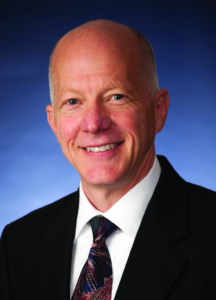
Edward Schaefer, founder and president of The Collegium
*Edward Schaefer, founder and president of The Collegium, holds four degrees in music. His particular expertise is Carolingian chant, which he honed with study at the Conservatoire National Supérieur de Musique et de Danse de Paris and with chant scholars around the world.
Dr. Schaefer conducted the choirs at Gonzaga University in Spokane, Washington, which received numerous regional and national honors, for 20 years. After his tenure there, he was associate dean in the College of the Arts at the University of Florida and a faculty member in its School of Music.
In observance of The Collegium policy that all administrators teach, Dr. Schaefer teaches Latin and Music. Dr. Schaefer is also a Benedictine oblate of the monastery of Our Lady of Clear Creek, Oklahoma, USA.
Contact The Collegium at the-collegium.org.

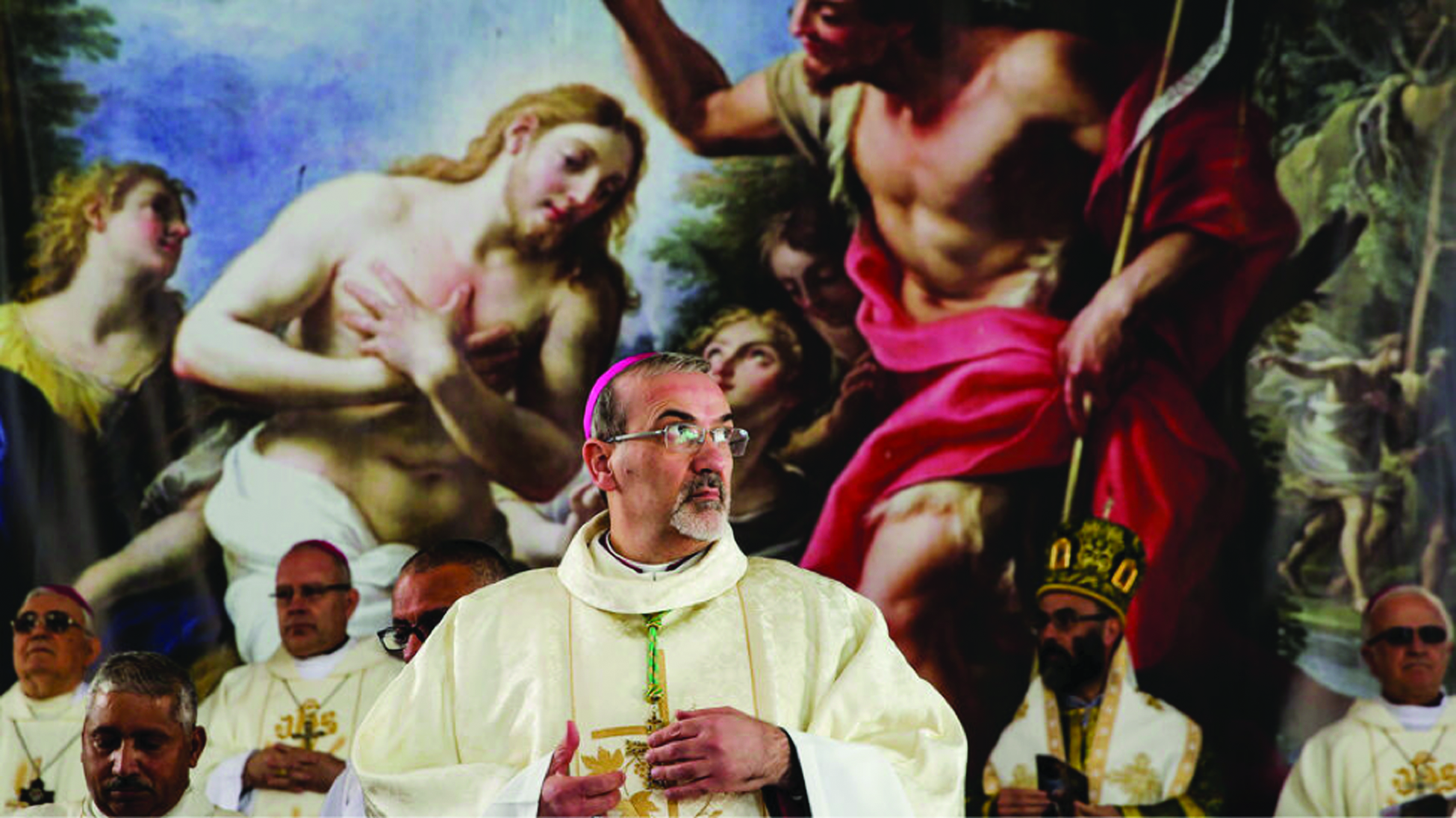
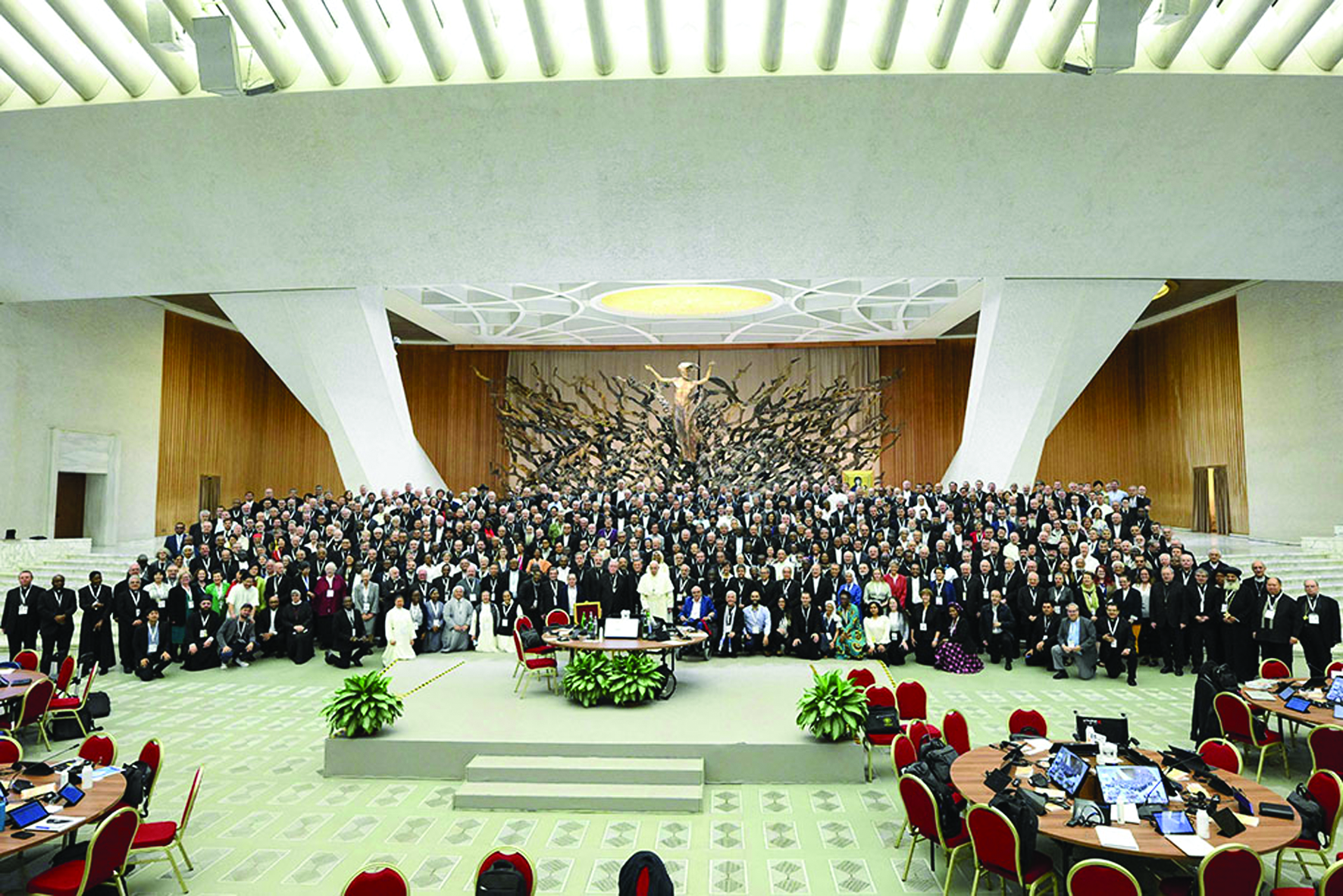
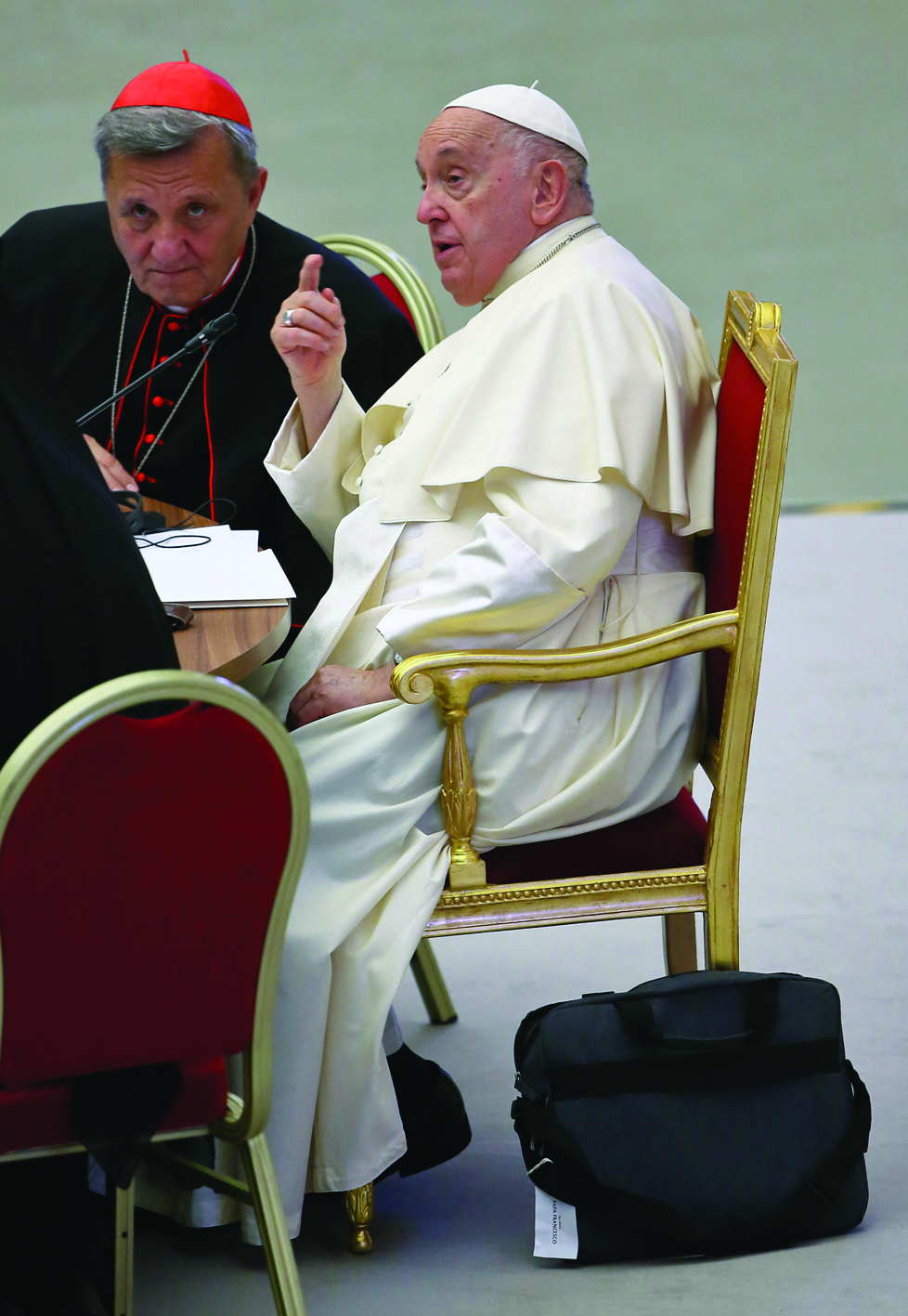
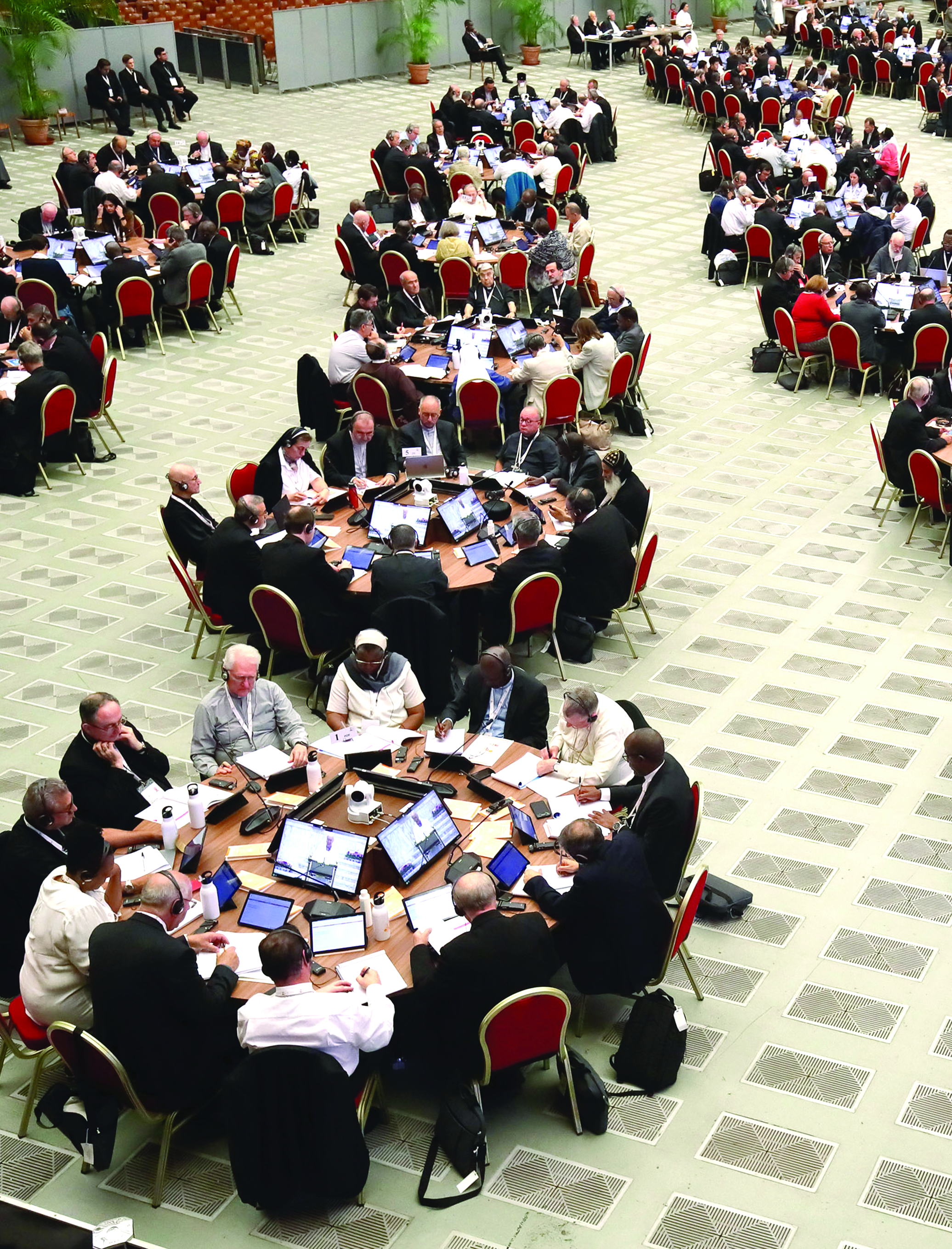
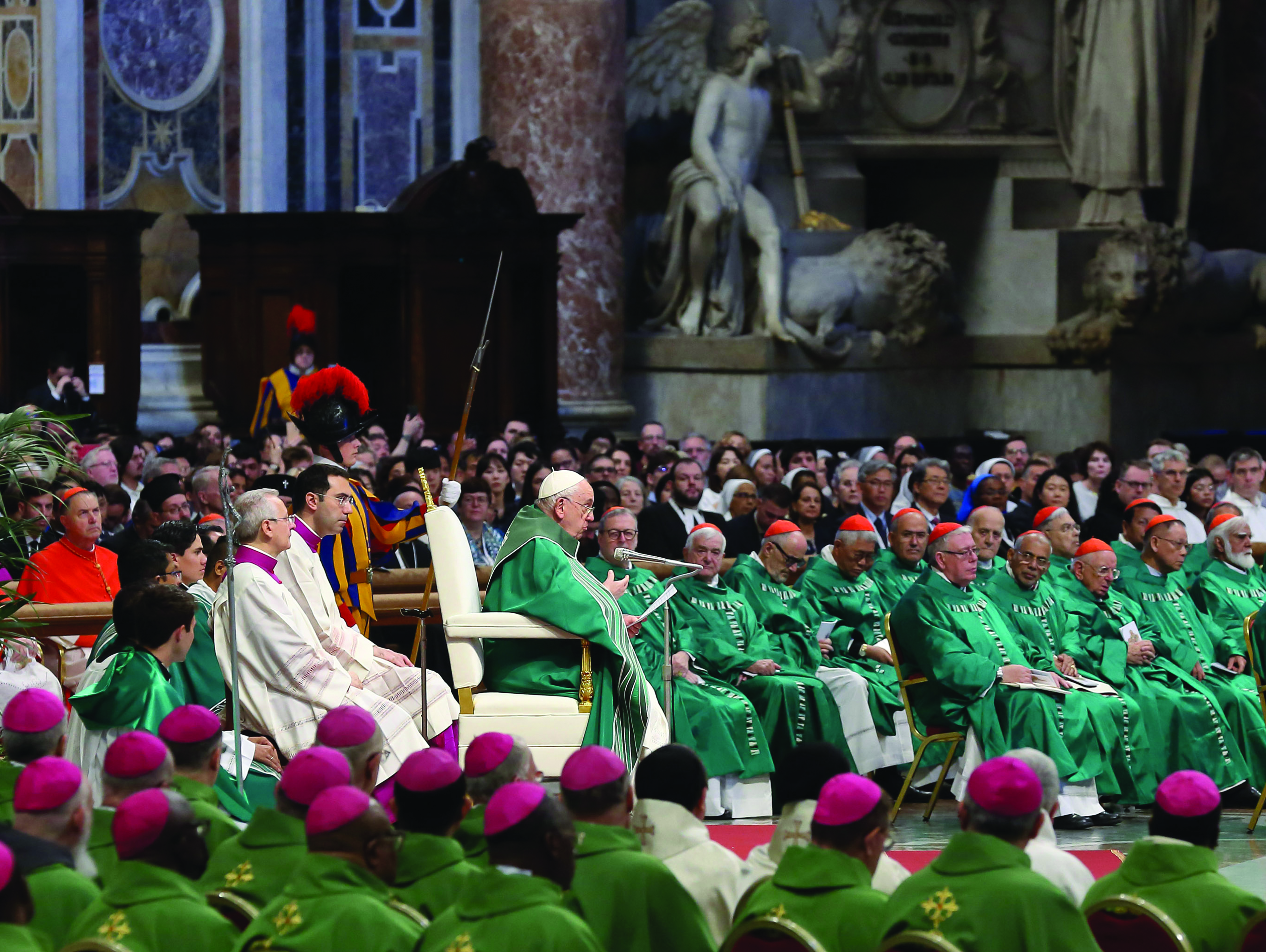
Facebook Comments